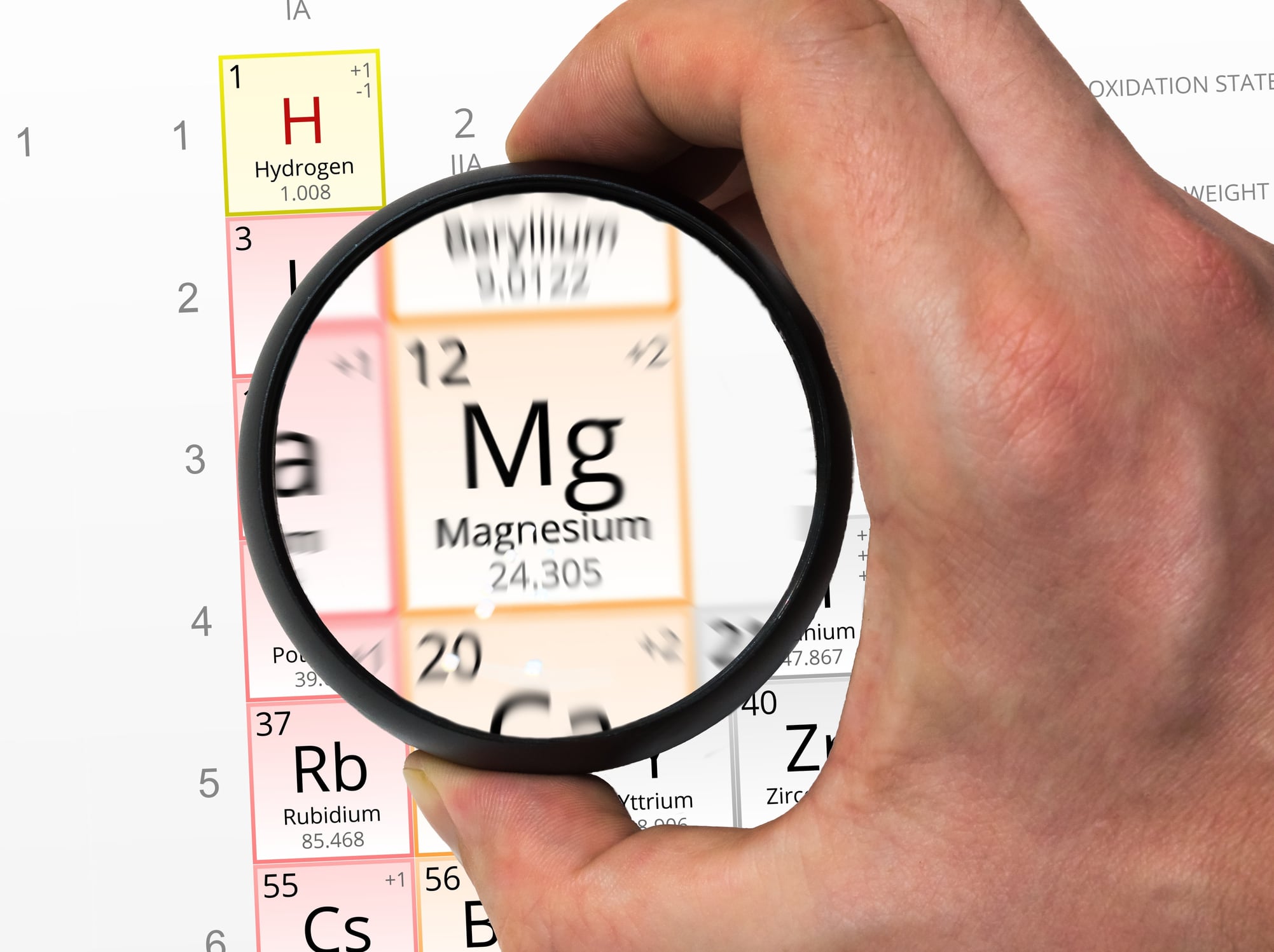Anaemia incidence is more likely to affect females, older populations and those from lower family income backgrounds based on correlation with magnesium deficiency, a study of data from the National Health and Nutrition Examination Survey 2011–2016 concludes.
While previous studies that focused on specific populations have reported that magnesium deficiency has a potentially modifiable association with anaemia, this new study explores the association of magnesium intake with anaemia in adults, as well as possible effects of age and sex.
The authors from Ganzhou People’s Hospital, in Jiangxi, China, declared in the study: “Previous studies have reported that magnesium deficiency has a potentially modifiable association with anaemia, yet have mostly focused on specific populations. Data on the relationship between dietary magnesium intake and anaemia in the general population are limited.
“This was the first study to investigate the relationship between dietary magnesium intake and anaemia using a nationally representative sample of US adults. The fact that this was the largest study looking at this association may guarantee statistical effectiveness.
“More conceivable confounders were taken into account and accounted for. To investigate potential special populations, a sensitivity analysis stratified by sex and age was carried out.”
Significance
Magnesium insufficiency has been linked to a variety of diseases, including atherosclerosis, diabetes, hypertension, myocardial infarction, and calculi. An imbalance in magnesium homeostasis can also result in cell membrane alteration and increased oxidative stress.
The recommended daily requirement for magnesium intake in adults in the United States is 420 mg for men and 320 mg for women. However, data from this investigation revealed that the daily magnesium intake value in the anaemic group was 239 mg, around 40% lower than the recommended daily amount. The authors state: “Inadequate magnesium intake has been a growing concern in recent years.”
Dietary magnesium intake is often below recommended. A previous study found that 28% of women develop anemia during pregnancy due to magnesium deficiency, and another study showed that including magnesium into diet was an appropriate strategy for preventing anaemia in older Chinese people.
Whilst magnesium intake is one issue, anaemia prevalence nearly doubled from 4.0 to 7.1% in US population between 2003–2004 and 2011–2012.
Anemia is characterised by a reduction of hemoglobin capacity in the blood (less than 13.5 g/dL in men; less than 12.0 g/dL in women), which can result in tiredness, cardiovascular issues, and diminished bodily function. Anemia is linked to an increased risk of a number of negative outcomes, including cardiovascular disease, poor quality of life, morbidity, and death. In addition, anaemia has been linked to an increase in hospitalisation rates, particularly in older adults.
The study
Data from the National Health and Nutrition Examination Survey 2011-2016 were used to attain data on 13,423 people aged 20 to 80 years. Magnesium consumption was assessed using 24-hour meal recalls, and generalised linear models were developed to explore the connection between magnesium intake and anaemia - first using uni-variable logistic regression to identify factors linked to anaemia, and second applying multivariate logistic regression models.
Covariates included age, sex, race/ethnicity, educational experience, smoking status, physical activity level, and body mass index (BMI). Dietary information included total energy, protein, fiber, magnesium, calcium, and Vitamin D intakes.
The results reported that those with anaemia were more likely to be female, older, non-Hispanic black, individuals with a lower daily dietary intake (magnesium, calcium, vitamin D, energy, fiber, and protein), those with a lower family income, and individuals with obesity.
The authors state: “An inverse association between dietary magnesium intake and anaemia was found among US adults, utilising data from three continued NHANES cycles.
“In the sex-stratified analysis, an inverse association was found in females, whereas no significant difference was observed in males. Furthermore, we noticed a similar relationship between dietary magnesium intake and the risk of anaemia among older participants (age ≥ 60 years).
“To the best of our knowledge, this is the first and largest sociodemographic investigation to reveal the relationship between magnesium intake and the prevalence of anaemia in a general population.”
Mechanism of action
The authors of the study recognise that the precise mechanism behind this association between magnesium and anemia remains unclarified, yet several possible mechanisms may explain results.
Magnesium is considered an important coenzyme for glutathione peroxidase, which is involved in the synthesis of hemoglobin. Animal experiments have also shown that magnesium deficiency can cause microcytic anaemia. A previous study found magnesium deficiency was shown to reduce erythrocyte energy metabolism and hemoglobin synthesis which can lead to anaemia, and chronic magnesium deficiency may encourage the production of inflammatory compounds.
Higher concentrations of magnesium may promote the driving of hypoxia-inducible factor (HIF-1a) which are considered an important factor in the process of hemoglobin production, the authors state, adding: “A supposed mechanism is that magnesium deficiency may alter macrophage and iron homeostasis through the NF-κB pathway, which may indirectly impair the membranes and accelerate the aging of and damage to RBCs.”
Limitations
The study had some limitations. The chronological sequence of this link could not be assessed due to the peculiarities of cross-sectional studies. Moreover, metabolic markers, serum magnesium, and anaemia type information were not included in the database. Therefore, successive 24-hour dietary recalls could not be used to predict long-term magnesium status.
The authors conclude: “More large sample prospective studies are needed to further probe the mechanisms of the relationship between magnesium and anaemia.”
Journal: Frontiers
https://www.frontiersin.org/articles/10.3389/fnut.2023.1046749/full
“Association between magnesium intake and the risk of anemia among adults in the United States”
Authors: Jungao Huang, Jing Xu, Ping Ye and Xiaoqin Xin


